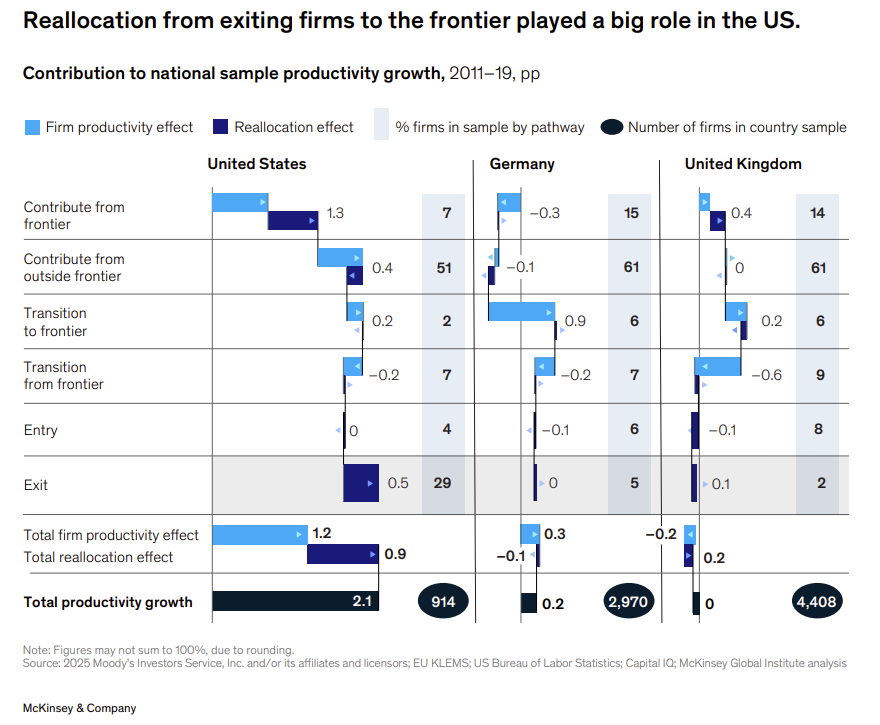Populist politicians rail against the notion of “creative destruction.” They claim the supposedly cruel churn of dynamic market capitalism erases good jobs from hometown factories and hands increasing wealth to distant shareholders. The people versus the powerful, with the former as big losers from economic disruption.
Yet a deep dive by consultant McKinsey into nearly 10,000 large companies across the United States, Germany, and the United Kingdom tells the opposite story: Joseph Schumpeter’s wrecking ball is hardly the zero-sum mechanism the critics suggest. Rather, it’s key to broad national economic success.
McKinsey’s research undermines that zero-sum narrative: Firms with the highest productivity growth also had the strongest profit and wage growth. Rather than exploiting workers, employees and customers are typically the biggest and most immediate beneficiaries of productivity growth. McKinsey: “Productivity growth is a win-win for all.”
The evidence here strongly supports market dynamism and American-style capitalism. The US sample had three times more “Standout” firms (companies that add to their country’s productivity growth through innovations like Amazon’s e-commerce platform or Apple’s smartphone revolution) than underperforming “Stragglers” (firms that detract from productivity growth). The German and UK samples had almost even numbers of Standouts and Stragglers.
This US advantage wasn’t just about innovative oomph, however. From the report:
Firms in the US sample had more reallocation of employees from less productive to more productive firms. Leaders grew faster, and underperforming firms more swiftly restructured or exited. … Overall, dynamic reallocation, including reallocation across subsector boundaries, added 0.9 of 2.1 percentage points—slightly less than half—to productivity growth in the US sample. In contrast, the contribution of reallocation was negligible in Germany and the United Kingdom. This may be explained by the fact that the United States has highly dynamic factor markets, allowing for quick entry and exit as well as fast scale-up and restructuring

The policy lesson is straightforward enough: Countries with flexible labor markets transform creative destruction into widespread prosperity. Those that preserve the status quo guarantee decline. If populist nationalists truly want stronger communities, they should focus on helping workers transition to more productive companies—consider moving assistance, rapid retraining, and portable benefits—rather than protecting the local factory or other employer from competitive pressures, whether domestic or global.
Schumpeter’s classic insight endures: allow successful businesses to expand, let failing ones disappear, and wages will increase. Those who try to stop this productive process risk hurting the very communities they claim to champion.
The post Creative Destruction, FTW (Again) appeared first on American Enterprise Institute – AEI.















